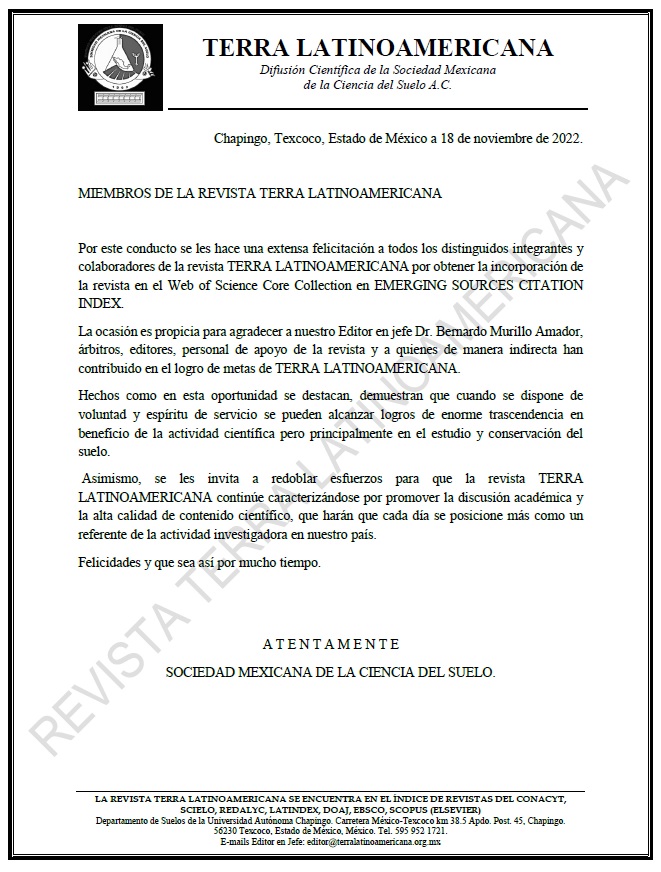Biological, organic and reduced mineral fertilization in soybean (Glycine max L.)
DOI:
https://doi.org/10.28940/terra.v39i0.725Keywords:
oil, biofertilizers, protein, yield, prof itabilityAbstract
Chemical mineral fertilization (CF) in soybean (Glycine max L.) is a regular practice and depends on the availability of moisture in soil. The increase in cost of agricultural inputs and loss of soil fertility drive the search for sustainable strategies. The objective of this experiment was to use biological fertilization alternatives (FB) in this crop with the Huasteca 400 variety. Treatments were (1) control, 18-46-00 (100% CF); (2) arbuscular mycorrhizal Biogea® + 50% CF; (3) arbuscular mycorrhizal INIFAP + 50% CF; (4) Biogea + poultry manure (1 Mg ha-1) + 50% CF; (5) Biogea + gypsum (0.5 Mg ha-1) + 50% CF; and (6) Bradyrhizobium japonicum (Cel Tech®) + arbuscular mycorrhiza INIFAP (Rhizophagus intraradices). Soil plant analysis development (SPAD) index was measured in stages V1, V5, and R2, and plant height in V5 and R5. Yield, grain protein, and oil percentage were quantified at harvest. The economic production analysis was determined by profitability. No statistical differences were recorded between alternative treatments and the control group. The combination between B. japonicum and R. intraradices showed the best profitability with a benefit-cost ratio of 2.6 and a profit of USD 11 890 per hectare. This alternative management of soybean nutrition can promote greater profitability and decrease due to contamination in the agroecological environment.
Downloads
Publication Facts
Reviewer profiles N/A
Author statements
- Academic society
- Terra Latinoamericana
- Publisher
- Mexican Society of Soil Science, C.A.
















